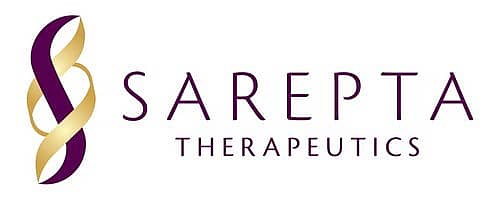
Sarepta announced positive 12-week expression and safety results from the first 11 participants enrolled in Study SRP-9001-103, an open-label study known as ENDEAVOR being conducted in partnership with Roche.
Read their full press release here.
For any additional information, please visit https://www.sarepta.com/.

Dear Duchenne community,
Today, Sarepta Therapeutics released data from Study 9001-103, ENDEAVOR, an open-label study conducted in partnership with Roche of SRP-9001, an investigational gene transfer therapy for Duchenne Muscular Dystrophy. The ongoing ENDEAVOR study is the first SRP-9001 study using commercially representative material. Use of this material is an important step in the clinical development program as it means that Sarepta will be able to manufacture the therapy at scale while also showing consistent and encouraging biological results. Today’s data reflect experiences of the first 11 participants to enter the study, ages 4-7.
Participants in ENDEAVOR underwent muscle biopsies before receiving SRP-9001 and again 12 weeks after administration of SRP-9001. Muscle biopsies are important tools in understanding how a gene therapy is working in a clinical trial. Here are three questions one may ask about gene therapy that are answered through the evaluation of muscle biopsies:
- How much of the transgene got into the muscle cells (transduction)? The participants in this study showed a mean of 3.87 vector genome copies per nucleus.
- How much micro-dystrophin is made, or expressed? Using a laboratory technique called a western blot, participants in the study achieved mean micro-dystrophin expression levels of 55.4% of normal at week 12.
- Did the micro-dystrophin get to the muscle cell membrane (dystrophin positive fibers and intensity)? Micro-dystrophin was localized to the muscle cell membrane (sarcolemma). The mean percentage of dystrophin positive fibers was 70.5% (baseline 12.8%) and mean % intensity was 116.9% (baseline 41%) after SRP-9001 infusion as measured by immunofluorescence.
Importantly, the ENDEAVOR study examines safety, and the safety profile of SRP-9001 has been consistent with prior studies with no new safety signals identified. Participants most commonly experienced vomiting in the early days following gene therapy administration. Increases in liver enzymes were also reported, and they were transient and responsive to steroids. Two patients experienced serious adverse events (transaminase elevation in one patient and nausea and vomiting in a second patient) that fully resolved.
Clinical efficacy, or how SRP-9001 impacts muscle function, is also being measured as an exploratory endpoint and will be shared in a future scientific meeting.
ENDEAVOR is the third ongoing human trial of SRP-9001 and Sarepta has been previously invited by Parent Project Muscular Dystrophy (PPMD) to discuss program updates. This Duchenne community webinar is being planned for June 2, 2021.
As members of the Duchenne community, you may wonder what the next steps for this program maybe. Here’s a summary:
- Armed with these and other accumulated data, Sarepta and Roche will meet with regulators with the goal of rapidly starting the SRP-9001 registrational study.
- We will share more details about the pivotal Phase 3 study of SRP-9001 following these important discussions.
- We also intend to expand the ENDEAVOR study to include older individuals who are ambulatory and non-ambulatory. More information about these cohorts will be shared with the community and will appear on clinicaltrials.gov soon.
We hear and acknowledge the urgency expressed by the Duchenne community. So many in the community are evaluating the emerging landscape of approved and investigational therapies and are gathering information that will inform understanding and decision making. Your questions are important to us and we hope that we will have more SRP-9001 program information to share in the near future. We are most certainly energized by the latest data and we are focused on working as quickly as possible to advance the next study.
Sincerely,
Siobhan Fitzgerald
Executive Director, Patient Affairs
Sarepta Therapeutics






